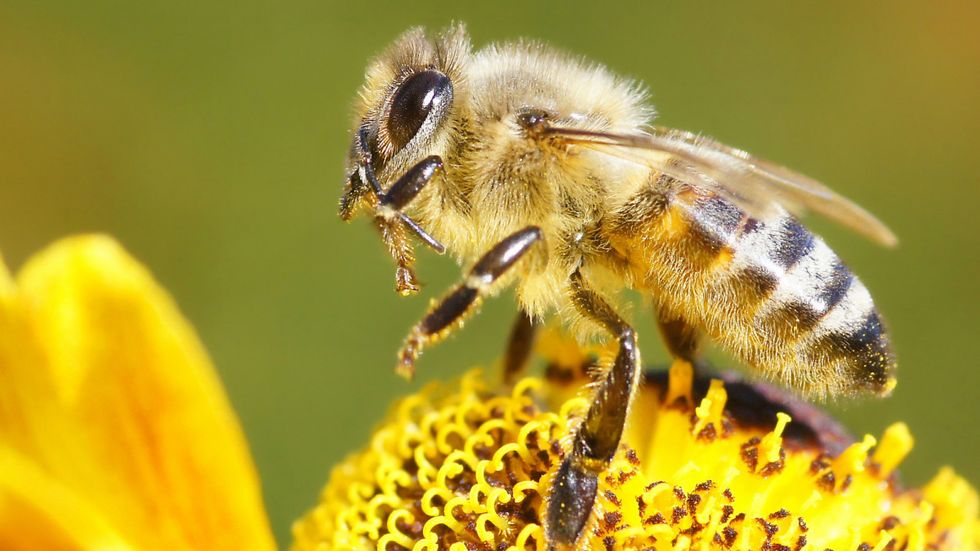As evident by the weather, Spring is fast approaching. With Spring comes the budding of beautiful flowers, fruits and warmer weather. With those things comes active beehives once more. Many people are afraid of bees, they see them as scary and kill them or get them exterminated without a care. This is bad, bees are mostly docile and are here to help. There are several hundred species of bees alone, and they are unrelated to the wasp or hornet families. Bees only sting when provoked or when they feel their hives are threatened. I have saved multiple bees and have held a bumble bee on my finger without it stinging me. They are really not bad or scary, and they are not out to get you. In fact, they are mostly just misunderstood. What's worse is that there is a bee crisis going on right in front of our eyes, one that has been going on for years, and beekeepers and environmentalists alike have been tirelessly working to keep them from going extinct. Because without bees, human life truly cannot be sustained for longer than a few years after. The irony of the situation is that it is humans who are responsible for the bee crisis.
Bees are actually extremely interesting creatures. Their entire lives are focused on the functionality and life of their hive. They don't even realize they are helping the human race the way they are. All species of bees are extremely intelligent, they can recognize human faces. This has been studied by beekeepers. Bees are also deaf, and they defy the laws of physics because their wings should not be able to carry their bodies. They have special bee dances they do to communicate with one another, and they even say WHOOPS when they bump into each other. This isn't even the surface level of how interesting and dynamic these creatures are.
Development, fires and vegetation being lost have contributed to bees being endangered. The bee population has faced a slow decline over many years, and even small changes could result in the loss of bees over a short period of time. The number of bees in the United States has been dwindling for years due to CCD. CCD is the disappearance of worker bees making the rest of the hive impossible to function, many reports claim that CCD was first reported in 2006. Bee colonies have been in danger for over 10 years now.
Even though the bee crisis has been going on for many years, many people are just beginning to pay attention to it. This is another way that bee endangerment is human error because paying attention is key to being able to save endangered species in enough time. Mono-culture, pesticides and herbicides are also to blame. For example, states like California will have thousands of square miles with nothing but almond trees. When the almond trees bloom and are ready to make almonds, the bee, and it has to be a honey bee, has to visit every single flower to make every almond. But with thousands of square miles of almond trees, they bloom and after 2 or 3 weeks and there are no other flowers growing because it's all almond trees. So wild bees can't survive because there is no food. This is mono-culture. Pesticides are another debilitating issue for the bees, as EPA (Environmental Protection Agency) experts state that they are poisoned by exposure to the chemicals.
Humans are continuously threatening the lives of bees in these ways, which in turn could mean shortage of food for humankind. Fruits, vegetables and other important nutrients will cease to exist if bees become extinct, because they are our main pollinators and at least 75% of the worlds food supply depends on pollination. Humans need to take a step back and all work together to start saving the bees and in turn, the environment.
Planting bee-friendly gardens full of milkweed and wildflowers is one of the many ways humans can lend a helping hand. Simply Google search pollinator-friendly gardens and you can find a plethora of flowers to plant. You can then run down to your local florist or hardware store and purchase any seeds you feel drawn to. Reducing the use of pesticides and herbicides will also help obviously. As well as treating bees nicely rather than smashing them as they will not sting unless provoked. You can purchase bee hotels or bee houses online to place in your garden where certain species of bees can live if they don't have a hive. Also, placing a small bowl of water would be helpful as well, seeing as bees do actually get thirsty. Popular Science even says, “Starting small and supporting conservation efforts could eventually give the bumble bees something to feel optimistic about.” People can help in many ways and turn this problem around, and since spring is right around the corner, why not start now? This, once more, is just the tip of the iceberg. Go ahead and do your own research and see what other ways you can take action and help the bees this spring and summer.






















